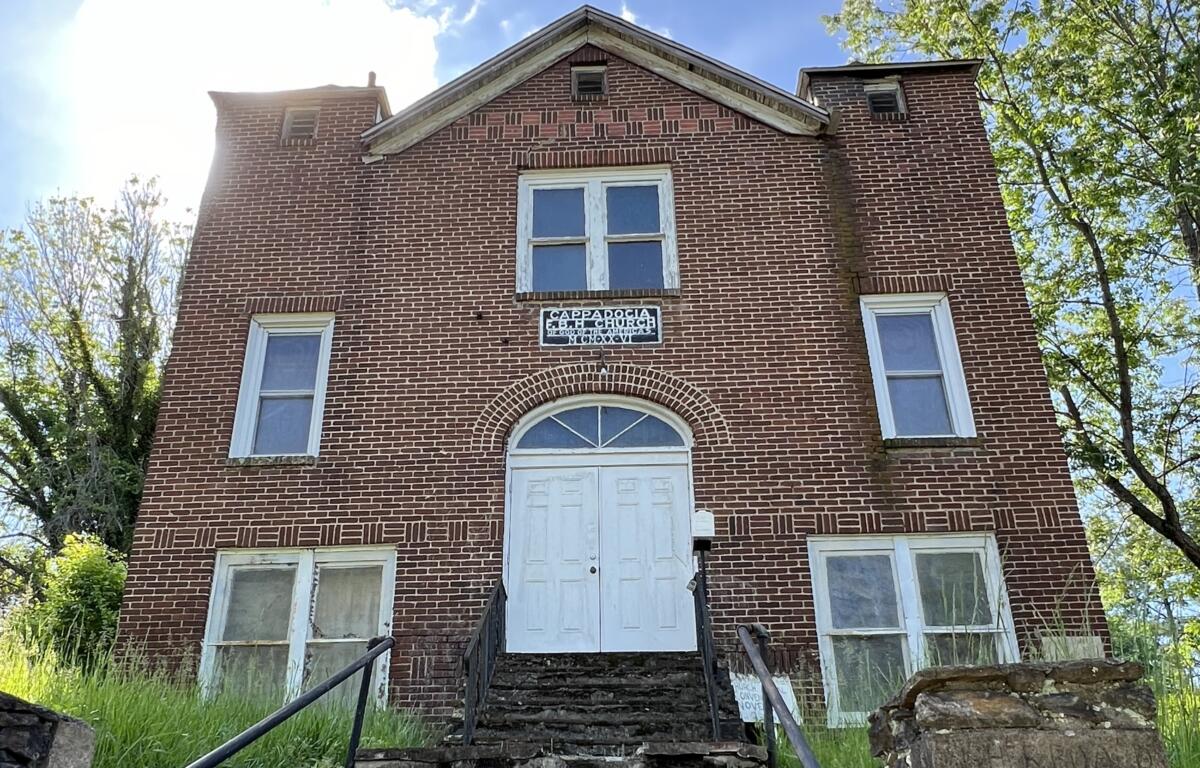ASHEVILLE, N.C. (828newsNOW) —
A small zoning decision will make a big difference for historic preservation in one Asheville neighborhood.
The City Council on Tuesday night unanimously approved conditional zoning to convert the long vacant Cappadocia F.B.H. Church into three housing units in the Historically African-American East End/Valley Street neighborhood.
The church building had survived more than a century, through waves of so-called “urban renewal” that demolished of hundreds of structures deemed not up to city codes and gentrification that displaced many families.
The church at 57 Max Street also was slated for demolition after a developer purchased the site in recent years.
“It felt like one more assault on the community,” longtime neighborhood resident, the Rev. S.F. James “Jim” Abbott, told council members.
PANEL ENTHUSIASTIC ABOUT CHURCH AS AFFORDABLE HOUSING
But then, in consultation with the neighborhood association, the Preservation Society of Asheville & Buncombe County negotiated with the developer to purchase the church.
The plan now is considered an adaptive reuse, splitting the main floor of the church into three small apartments — two in the front and one in the back — with the vaulted ceilings preserved.
The goal is to make the apartments into affordable housing, although the cost of the units will depend upon costs of construction, Jessie Landl, executive director of The Preservation Society told 828newsNOW earlier this month.
Saving the historic structure but also providing affordable housing is “the best of both worlds,” Landl said.
The City Council needed to approve a highly technical matter on Tuesday to make it possible: changing its zoning district type from RS-8 to an RM-8 conditional zone, with an easing of a buffer requirement.
Public speaker Robert Robinson, who often weighs in on zoning matters, called the project “fantastic” and “amazing,” and said he was “super, super strongly in favor.” But he did suggest that the City Council revisit its zoning laws so certain small, subtle or seemingly innocuous zoning matters don’t trigger a costly, time-consuming or budensome process of requiring conditional zoning hearings.
“How does this requirement benefit the public good?” he asked.
City officials offered nothing but praise for the Cappadocia F.B.H. Church conversion project.
City Council Member Sheneika Smith said it could inspire other congregations with surplus property to consider adaptive reuse, converting church buildings into affordable housing.
“I think it would be a great benefit to keep neighborhoods intact,” she said.






